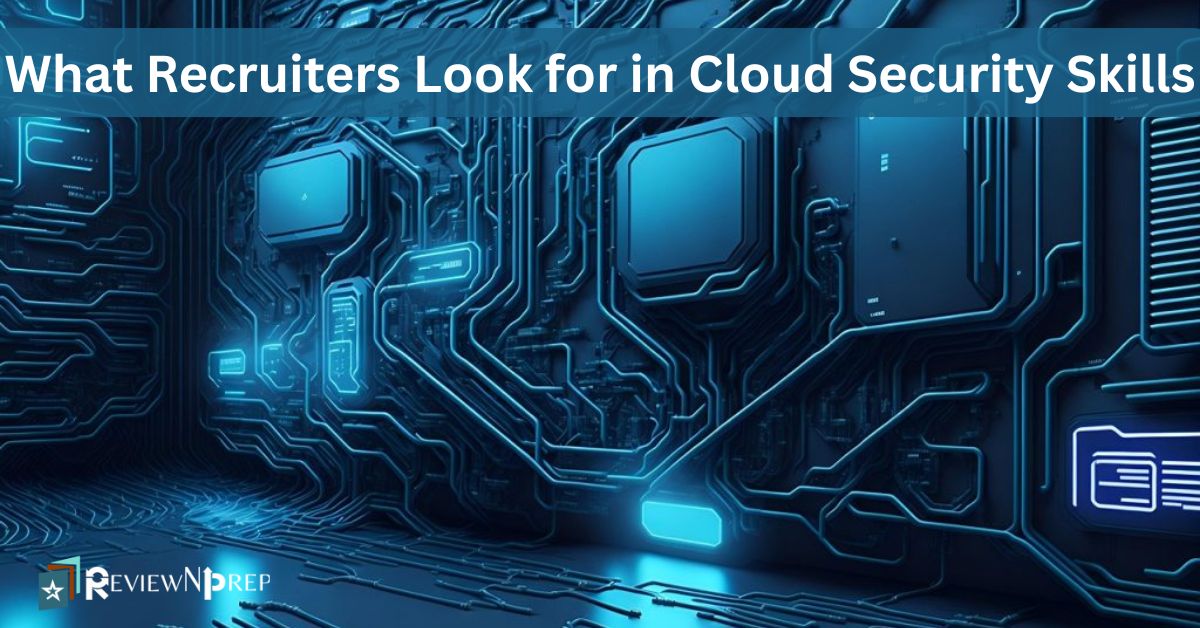With the cloud increasingly becoming mission-critical infrastructure, the demand for skilled professionals is expected to surge. In fact, the market is already dealing with a lack of skilled professionals as more businesses move to multi-cloud/hybrid architectures.
These businesses need specialists with a well-rounded skill set that blends core technical expertise—particularly in AWS, Azure, and GCP security, Infrastructure as Code (IaC), DevSecOps, and compliance—with emerging capabilities like AI-driven threat detection, Zero Trust, and automation, as well as strong soft skills in communication, adaptability, and business acumen.
So, if you’re looking for a career path that almost guarantees lots of interesting projects and good pay (cloud security specialists make around $162K a year!), then here’s a list of skills you should be working on.
Cloud Platforms & Cloud-Native Security
Employers expect proficiency with the major cloud providers like AWS, Azure, and Google Cloud (GCP). You should be able to deploy, manage, and secure applications across these environments.
To get there, it’s important to master the fundamentals. To avoid overloading your learning experience, start with one of the major cloud platforms and later expand to others. In fact, it’s a good idea to choose your primary platform based on the type of position and employer you seek.
For instance, AWS is great for startups, Azure is mostly used in enterprises, and GCP is mostly present in data-heavy organizations. The great news is that all of these platforms offer free training for hands-on basics. However, to advance further, you will need a reliable and recognized cloud certification.
Real-World Experience with Cloud Security Tools
Luckily, you don’t need enterprise-scale infrastructure to learn. Major cloud platforms offer free tiers and sandboxes where you can deploy workloads, configure policies, and test security scenarios.
For instance, you can build your mini-infrastructure to test things. Start by choosing a platform (AWS, Azure, or GCP) and creating a virtual machine (VM), one storage bucket, and a small database. Secure all these items using: IAM policies (least privilege), encryption with KMS/Key vault, and threat detection with GuardDuty, Defender, or SCC.
Once you have everything set up, deliberately misconfigure something (e.g., make a bucket public), then use the security tool to detect it.
Also, make sure to follow guided labs and workshops from major cloud service providers. Here are a few worth mentioning:
- AWS Workshops: workshops.aws (look for “Security” category)
- Microsoft Learn: Security learning paths
- Google Cloud Skills Boost: Security learning track
These walk you through scenarios like detecting threats, securing resources, and responding to incidents.
Compliance, Governance & Encryption
Cloud environments must be compliant because this is what keeps businesses running smoothly. Plus, rules and regulations are usually in place for a good reason, like security, privacy, differences in jurisdictions, and so on.
This is why many employers appreciate familiarity with frameworks like GDPR, HIPAA, ISO 27001/27017, and regulations relevant to the organization you’re trying to get hired by. Skills in encryption (data at rest/in transit, key rotation, PKI) and conducting risk assessments are highly sought after.
In fact, it’s great if you know how to handle a cloud security risk assessment platform. Most employers want professionals who can interpret findings from multiple sources and turn them into risk language that business people understand. To get everyone’s attention, show them you know how to prioritize fixes based on severity and impact.
AI & Machine Learning for Security
Artificial intelligence is changing the game in many fields, including cloud security. AI-driven tools can now analyze massive volumes of logs and network activity in real time, spotting anomalies and zero-day threats that traditional systems might miss.
Machine learning models are advanced enough that they can predict potential attack patterns and automate incident response. Plus, they keep learning and adapting, so new threats don’t baffle them as much.
In multi-cloud environments, AI also streamlines compliance checks and risk assessments, reducing human error and accelerating remediation. It also powers advanced identity verification and Zero Trust architectures, making cloud defenses more proactive, efficient, and resilient against increasingly sophisticated cyberattacks.
So it’s easy to see why employers are increasingly looking for professionals capable of working with emerging technologies like AI and machine learning. Additionally, understanding AI-specific security threats and mitigating bias or vulnerabilities in models is becoming increasingly important.
In Summary
Today’s employers want cloud security professionals with a well-rounded, multi-layered skill set. Mastering the basics is no longer enough; you also need expertise in emerging areas like AI-driven threat detection, Zero Trust, and automation.
Soft skills and relevant certifications add extra value, opening doors to greater career flexibility and opportunity. The smartest path forward is to dive in: explore these tools, experiment with the platforms, and get hands-on experience so you understand their processes and systems inside out.
Further Reading:
Ace Your Next IT Cert: 7 Unexpected Mistakes Most Candidates Make (and How to Avoid Them)
Choosing Your IT Destiny: Comparing Cloud and Cybersecurity Career Paths

